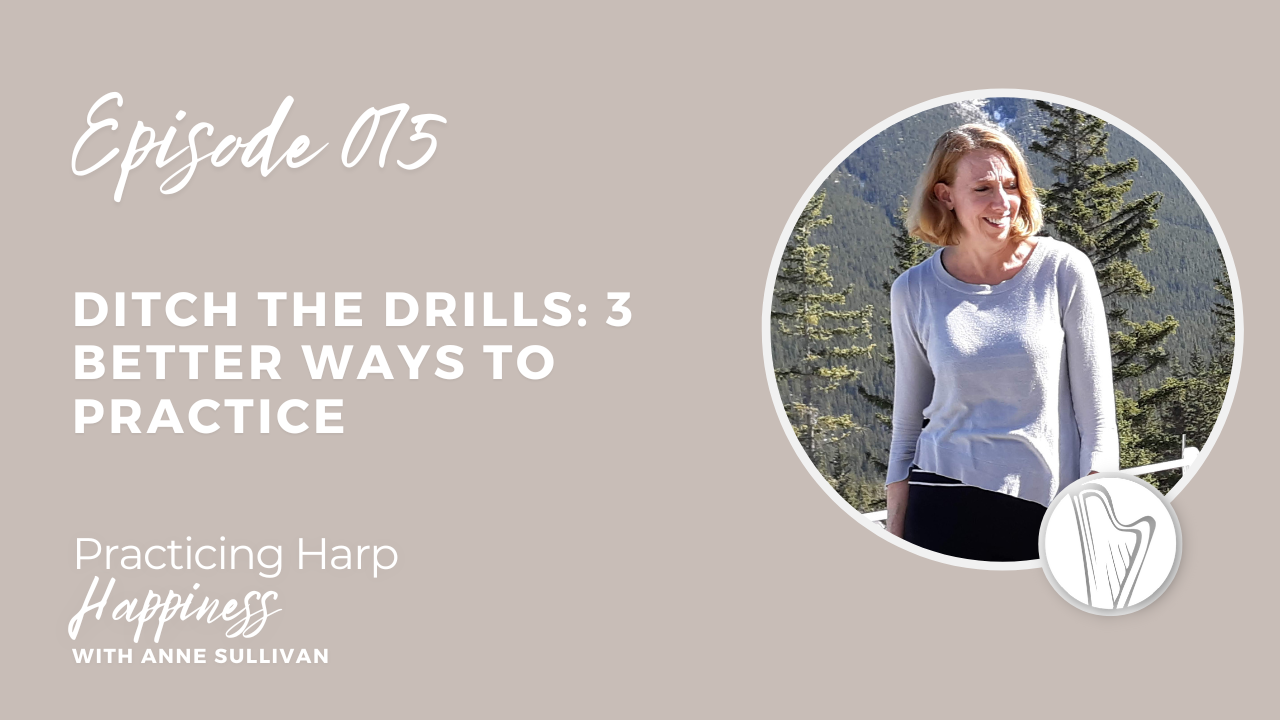#075: Ditch the Drills: 3 Better Ways to Practice

Who wants a better way to practice? Yes, please!
While it's true that music practice necessarily involves a lot of repetition and drill, there are better - and definitely worse - ways to go about it. Consider how many times you have gotten up from the harp bench having spent an hour on those four nearly impossible measures and come back the next day to feel like you’re starting back at square one again. I feel your pain, my friend, I’ve been there.
Hopefully, you’re keeping in mind that progress doesn’t happen in a predictable way; it happens in its own time. It’s like a seed you plant in the ground. You water it and guard it carefully but you can’t really see through the ground to see if anything is happening. Then one day you go outside and there it is - a baby plant.
Yes, progress happens over time and is nurtured through repetition, but unlike the growth timeline for a seed, we have a little bit of control of how quickly that progress shows up.
If you’ve read my ebook “Kaleidoscope Practice” or have been listening to me for a while, you know that I am not about repetition just for repetition’s sake. Repetition is required; it’s how we become familiar with our music, how we acquire all the information we need to play a piece well: the notes, the finger patterns, the expression, the flow, the meaning. There is so much complexity in playing a piece of music well that we need the time and drill to really embed all those component parts.
But that embedding process is less dependent on the number of repetitions than on the focus of them. And on today’s show I’m going to show you three places to put your focus that will allow you to make each repetition more meaningful and impactful, so you can do fewer repetitions and get to the fun part - playing the music - faster.
Why do I think this is important for you right now? Because if you’re looking ahead to any holiday performances, even if it’s just playing for your family, you want to get that music ready sooner rather than later. There are lots of things we can do to speed up our music preparation, but cramming isn’t one of them. So being smart with how you use your daily practice time is what will make the difference between being excited about sharing your music or shaking in those beautiful new shoes. This is the time to ditch the excess drill and frustration that goes with it and discover a better way to practice those sticky spots.
Links to things I think you might be interested in that were mentioned in the podcast episode:
- Join the Play It With Confidence Intensive
- Related resource The Musician’s #1 Labor-Saving Strategy blog post
- Harpmastery.com
Get involved in the show! Send your questions for future podcast episodes to me at [email protected]

